Just In
- 11 hrs ago

- 11 hrs ago

- 14 hrs ago

- 15 hrs ago

Don't Miss
- Finance
 Rs 45/Share Dividend: Record Date In Due Course; Buy The IT Stock For Dividend Eligiblity?
Rs 45/Share Dividend: Record Date In Due Course; Buy The IT Stock For Dividend Eligiblity? - Sports
 Dominant Gauff double bagels Rus at Madrid Open
Dominant Gauff double bagels Rus at Madrid Open - Movies
 TRP Report Week 16: Anupamaa, Jhanak BEAT Yeh Rishta Kya Kehlata Hai, Ghum Hai. Top 10 Shows List
TRP Report Week 16: Anupamaa, Jhanak BEAT Yeh Rishta Kya Kehlata Hai, Ghum Hai. Top 10 Shows List - News
 MEA Dismisses US Human Rights Report On Manipur As 'Biased And Misinformed'
MEA Dismisses US Human Rights Report On Manipur As 'Biased And Misinformed' - Automobiles
 Royal Enfield Unveils Revolutionary Rentals & Tours Service: Check Out All Details Here
Royal Enfield Unveils Revolutionary Rentals & Tours Service: Check Out All Details Here - Technology
 Elon Musk’s X Is Launching a TV App Similar to YouTube for Watching Videos
Elon Musk’s X Is Launching a TV App Similar to YouTube for Watching Videos - Education
 AICTE introduces career portal for 3 million students, offering fully-sponsored trip to Silicon Valley
AICTE introduces career portal for 3 million students, offering fully-sponsored trip to Silicon Valley - Travel
 Escape to Kalimpong, Gangtok, and Darjeeling with IRCTC's Tour Package; Check Itinerary
Escape to Kalimpong, Gangtok, and Darjeeling with IRCTC's Tour Package; Check Itinerary
World Haemophilia Day: Haemophilia Nutrition Tips - Foods To Eat And Avoid
Haemophilia is a rare, inherited condition in which your blood does not clot normally due to the lack of sufficient blood-clotting proteins or clotting factors. An individual with haemophilia will have excessive bleeding, as the blood doesn't clot properly.
If an individual with haemophilia gets injured, they can bleed for a longer time. While small cuts do not pose any risk, deep bleeding inside your body, especially in your knees, ankles and elbows, and can damage your organs and tissues [1].
According to the World Federation of Hemophilia, about one in 10,000 people are born with this genetic disorder [2]. In some individuals, haemophilia can develop after birth and is called acquired haemophilia. Haemophilia is of three types or forms, haemophilia A, B, and C and haemophilia A is the most common type [3]. Most forms of haemophilia are inherited, however, 30 per cent of people with haemophilia have no family history of the disorder.
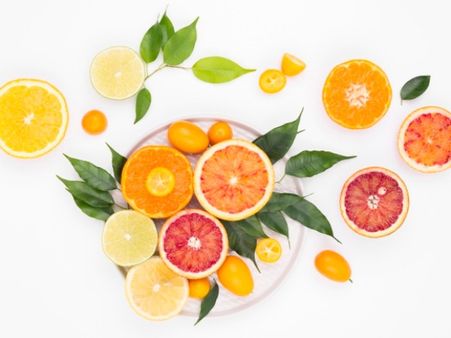
Importance Of A Proper Diet For Haemophilia
Although medication and therapies are used in the treatment of haemophilia, nutrition and diet can also play an important role. Maintaining ideal body weight, eating healthy and avoiding food items with empty calories is very important [4].
Regardless of the haemophilia type - A, B or C, it is critical to keep your joints strong and healthy, and to maintain a healthy weight to avoid muscle strains and bleeding in vulnerable joints affected by the genetic condition [5].
One of the major complications reported in individuals with haemophilia is obesity [6]. Centres for Disease Control and Prevention (CDC) reported that teenagers and children with haemophilia are almost twice as likely to be overweight compared to the general population [7]. Excessive weight can put a strain on the joints and in turn lead to bleeds.
In addition to this, maintaining healthy iron levels is also important for people with haemophilia because an estimated 0.75 micrograms of iron is lost with every 15 ml of blood, pointing out the importance of sufficient iron consumption through diet [8]. Health experts point out that combining iron-rich foods with good sources of vitamin C can enhance iron absorption by the body [9]. Choose foods that are baked, broiled, or grilled than fried and are low in saturated fat.

Foods To Eat For Haemophilia
Individuals with haemophilia are recommended to stick to a diet rich in whole foods and low in fats, added sugars and salt [10].
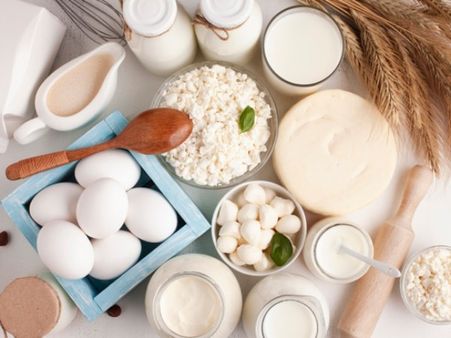
1. Calcium-rich Foods
Calcium helps build strong bones and maintain healthy teeth. Calcium-rich foods can help support platelet formation and blood clotting, as well as prevent excessive wound bleeding [11]. Add foods such as broccoli, tofu, yoghurt, figs, kale, milk, cheese, soymilk, asparagus, orange, almonds etc.

2. Iron-rich Foods
When you bleed, due to the condition in excess, iron is lost from your body. So, having a diet with iron-rich foods can help the formation of haemoglobin in our body [12]. Include lean red meat, beans, poultry, nuts, seeds and raisins in your diet. Also, iron is better absorbed when you eat with vitamin C such as oranges and tomato [13].
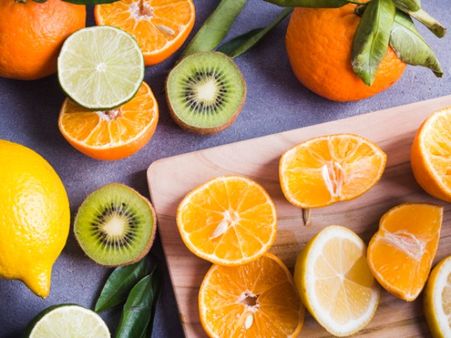
3. Vitamin C Foods
Eating a vitamin-C rich diet can help improve blood clotting and the production of collagen in our body [14]. Collagen can help reduce the severity of bruising associated with haemophilia. Include foods such as strawberries, oranges, apples, kiwi, spinach, blueberries, pineapple, papaya and Brussels sprouts [15].
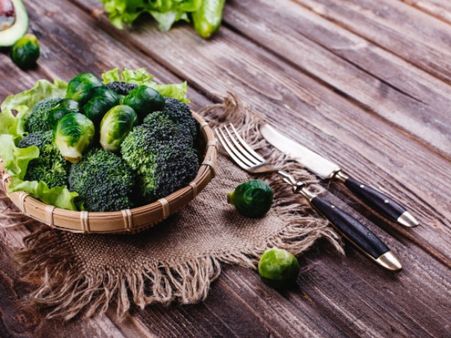
4. Vitamin K Foods
Vitamin K is important for the production of prothrombin, a coagulation or clotting factor that is needed for the normal clotting of blood, and glycogen, which may help to improve your liver function and blood clotting[16]. In addition to this, consuming foods rich in vitamin K also helps to control excessive bleeding [17]. Include foods such as spinach, broccoli, turnip greens, cabbage, asparagus, dark green lettuce, oats, bran, alfalfa, canola, olive oils, green tea.
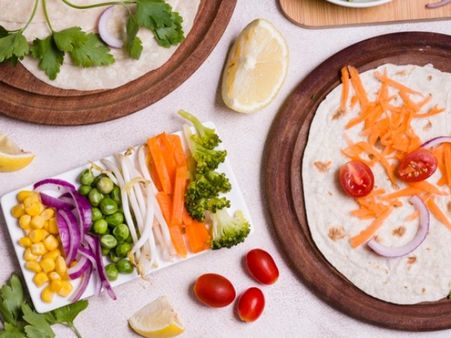
5. Vitamin B Foods
Vitamin B12 and vitamin B6 help in the production of red blood cells and all the B vitamins such as riboflavin and niacin improve the blood circulation and production in your body [18]. Include foods such as bananas, peas, corn, orange juice, peanut butter, egg yolks, poultry, fish, milk, yoghurt, fermented cheese, whole grains and soybeans. [19].
Note: Excessive consumption can increase the risk of bleeding.
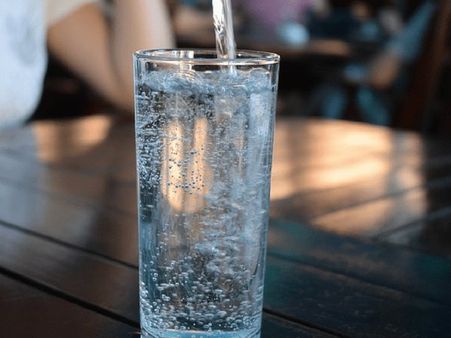
6. Stay Hydrated
Hydration is very important for individuals with haemophilia. Your whole body and its system need water to function properly. Try to drink 8 to 12 cups of water every day and more if you are very active or reside in warmer regions [20].

Foods To Avoid For Haemophilia
Avoid foods high in saturated fat and sugar [21]. Fatty snacks, fried foods, soda, sugary candies should be avoided. It is alright to eat a piece of chocolate or a form of sweet treat once in a while but practice portion control and limit frequency.
Limit your intake of the following foods [22]:
- Sugary candy
- Full-fat dairy products
- Soft drinks, energy drinks and sweetened tea
- Butter
- Heavy sauces
- Foods with trans fat such as pastries, pizza, cookies etc.
In addition to this, you should avoid supplementation of vitamin E or fish oil as some of these supplements can make bleeding worse, so consult your doctor first.Avoid ginger, garlic and ginkgo biloba supplements as well.

On A Final Note…
While incorporating these foods into your diet, make sure the diet is a well-balanced one. Consult your doctor or nutritionist before starting the diet. Although there are no special dietary recommendations for people with haemophilia, following some of the above tips may help you optimize overall health.

-
 healthWorld Haemophilia Awareness Day 2024 Wishes: Greetings, Messages, Texts, Images, Twitter And Instagram Status
healthWorld Haemophilia Awareness Day 2024 Wishes: Greetings, Messages, Texts, Images, Twitter And Instagram Status -
 disorders cureWhat Is Haemophilia? Its Causes, Symptoms, Complications, Diagnosis & Treatment
disorders cureWhat Is Haemophilia? Its Causes, Symptoms, Complications, Diagnosis & Treatment -
 wellnessWorld Haemophilia Day: Tips For Living Healthy With Haemophilia
wellnessWorld Haemophilia Day: Tips For Living Healthy With Haemophilia -
 wellnessWorld Haemophilia Day: Surprising Facts On Haemophilia
wellnessWorld Haemophilia Day: Surprising Facts On Haemophilia -
 nutritionWorld Haemophilia Day; Diet Tips For Haemophiliacs
nutritionWorld Haemophilia Day; Diet Tips For Haemophiliacs -
 wellnessWorld Haemophilia Day: Herbs That Help Cope Up With Haemophilia
wellnessWorld Haemophilia Day: Herbs That Help Cope Up With Haemophilia -
 wellnessWorld Haemophilia Day : Tips To Stay Mentally Strong When You Have Haemophilia
wellnessWorld Haemophilia Day : Tips To Stay Mentally Strong When You Have Haemophilia -
 wellnessWorld Haemophilia Day: Lifestyle Remedies For Haemophilia
wellnessWorld Haemophilia Day: Lifestyle Remedies For Haemophilia -
 wellnessWorld Haemophilia Day; Precautionary Measures Every Haemophiliac Needs To Take
wellnessWorld Haemophilia Day; Precautionary Measures Every Haemophiliac Needs To Take -
 pregnancy parentingWhite Lung Syndrome: What Are The Symptoms Of The Disease Rampant In China? How Does It Spread?
pregnancy parentingWhite Lung Syndrome: What Are The Symptoms Of The Disease Rampant In China? How Does It Spread? -
 healthWorld HIV/AIDS Day: What Is The Difference Between HIV and AIDS?
healthWorld HIV/AIDS Day: What Is The Difference Between HIV and AIDS? -
 healthDengue 101: Causes, Symptoms, Risks, Complications, Treatment, Prevention, Diet And More
healthDengue 101: Causes, Symptoms, Risks, Complications, Treatment, Prevention, Diet And More


 Click it and Unblock the Notifications
Click it and Unblock the Notifications




